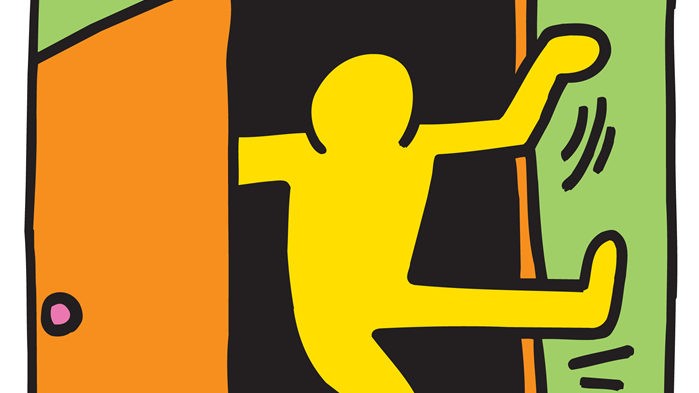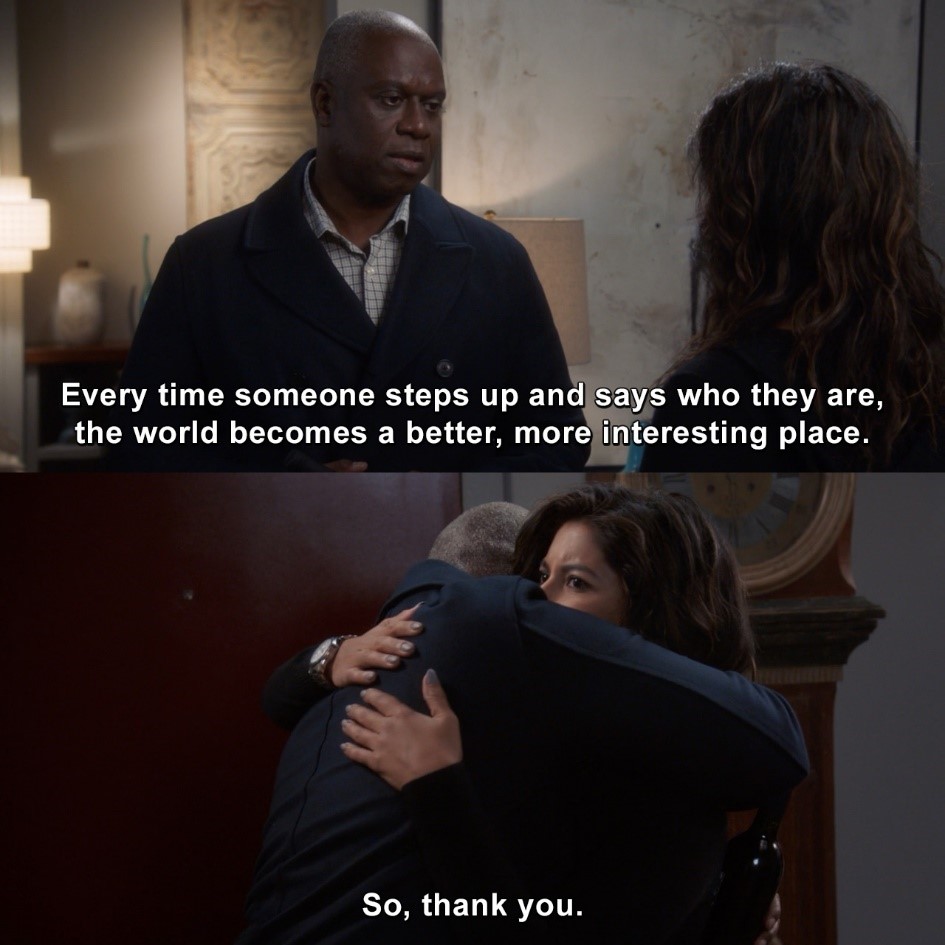Coming Out as Bi+

A simple process...right?
The official logo of National Coming Out Day—celebrated every October 11th in the United States—is a cute drawing by Keith Haring of a person exiting a closet. If only coming out were that simple: done easily and only once.
On the contrary, coming out can be a complex process. We come out to ourselves. We come out to our families and our friends. We come out to our co-workers and our health providers.
Coming out may not be a one-time event. It may be done repeatedly throughout our lives. We must weigh the benefits and risks of coming out to every new friend, family member, employer, or coworker. Unlike gay or straight people, we must decide when and whether to come out to potential romantic partners. And it may be that we have to come out more than once to the same person, as being in a relationship can cause people to forget or to assume that we’ve “chosen a side.”
When we do come out, we face unique challenges not experienced by members of the gay and lesbian communities. We face bi+ antagonism, the misunderstanding of and discrimination against bi+ people. People may think that we’re “just confused,” or “on the way to gay,” or “doing it for attention.” (We’re not!) Some even think it’s a phase. (Even if it is, your present identity is still valid!) Some think bi+ folks are promiscuous, can’t be monogamous, or shouldn’t be trusted. (Bisexuality doesn’t affect those traits in the slightest!) Some people simply think bisexuality doesn’t exist. (But we’re right here!)
But am I bi+ enough to come out?
You can use any label in the bi+ umbrella that resonates with you and represents how you feel love or attraction. If you are attracted to people of multiple genders, and you want people to know who you are, you can absolutely come out as bi+. You don't need to have had relationships with multiple genders to identify as bi+; your experience doesn’t define who you are.
The simple answer is “Yes, if you think so.” If you need any more confirmation, take this quick quiz.
Do I have to come out?
No! No one can make that decision for you. It’s a deeply personal choice, and you have the right to do what makes you feel safe and seen.
It’s okay to wait until you feel like you have support around you. It’s okay to come out to a few people and choose not to come out to others. It’s okay to come out about one part of your identity, but not be ready to come out about another yet. It’s okay to come out as one identity, then later come out as another as you discover more about yourself or change your mind about the labels that speak to you.
You don’t have to be out to find value in connecting with the bi+ community, in person or online. You don’t have to be out to speak up about bi+ issues. You don’t have to be out to be welcome here at the Bisexual Resource Center.

So why come out?
The reasons to come out are as varied as the people in the bi+ community. There are lots of reasons why people come out, and why it can be wonderful.
One reason is simply because bi+ is who we are. Being seen, understood, and accepted fully means coming out as bi+ to the people who care about us. In doing this, we allow people to know and love us in our entirety. To not tell them may feel like an omission of an integral part of ourselves.
Another reason is to find other people who feel the same way. Bi+ people may share similar experiences and perspectives about our lives. It can be freeing to find others who feel like us, and we can receive support and advice from our diverse, vibrant bi+ community.
Some of us come out because we feel the alternative to not coming out is misunderstanding. We may be mistaken for straight or gay because of the gender of our partner.
Some of us come out because the cost of silence can be great. Stress takes its toll on our body and our relationships, and coming out may allow us to relieve that pressure.
On a community level, coming out helps fight the stigma and stereotypes that we don’t exist. According to a 2011 Williams Institute study quoted in a Movement Advancement Project report, bisexuals actually make up 52% of the LGB population – that’s 33% women and 19% men. However, the report shows that bisexual people are also six times less likely to disclose their orientation compared to lesbians and gay men. Because our community is perceived to be so small, even though we are the majority, our disparities and needs are overlooked. By coming out, we help shed light on the bisexual+ community that is all around us, deserving of support and resources.
If you would like to read more about what coming out has been like for bisexual+ people, check out our blog.